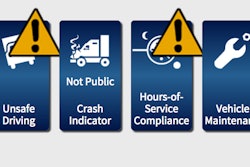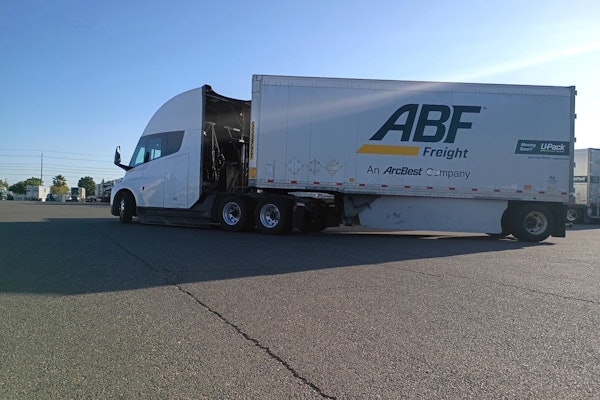In a letter sent to membership last week, the Alliance for Safe, Efficient and Competitive Truck Transportation (ASECTT) says it will continue to press for reforms to the oft-derided Compliance, Safety, Accountability program.
Tom Sanderson, CEO of third-party logistics provider Transplace and a key ASECTT figure, noted the group was once labeled a “lunatic fringe” by Washington insiders. However, he says, more than 60 “trade associations joined with us in supporting the premise that SMS methodology was inaccurate and unfit,” Sanderson said in the letter to ASECTT members.
In the letter, Sanderson lays out an agenda for the future of the organization. While recognizing the victory with the passage of the FAST Act in 2015 — which pulled CSA’s Safety Measurement System scores from public view — Sanderson said there’s still much to be done regarding CSA reform. “The war is far from over,” he wrote.
In addition to the continuing to push against reliance of SMS scores in carrier safety assessment, ASECTT sees the new administration as a chance to go on offense in some other areas, Sanderson notes.
ASECTT proposes an alternative to the CSA SMS and data-based approaches to rating that it sees as “fair, reasonable and economical” — a “new entrant-like biannual audit” for carriers, as Sanderson puts it. Likewise, it favors:
- Establishment of an “independent judicial branch” at the Department of Transportation to handle “administrative matters and judicial appeals”
- Elimination entirely of the use of guidance in lieu of conducting notice-and-comment rulemaking for new regulations
- Recognition that it is the agency’s job, not the shipper/broker’s, to determine carrier fitness
- Establishment, whether by regulatory or legislative action, that the “doctrine of preemption requires that federal law ‘trumps’ the application of state law when it comes to liability in accident suits, in independent contractor/owner-operator misclassification, and in “state overtime and other employment law situations”










